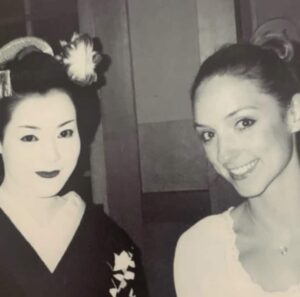
I’m a talker.
You’ve probably worked that out (especially if you’re lucky enough to hear my squeaky Aussie accent on instastories). So I really relate to that feeling, because that has been me in the past, of wanting to be able to say more than just “thank you” when someone has gone out of their way to be kind.
It makes you feel a bit like a baby again….and maybe a bit like a robot?
I remember before my Japanese was good enough to have a little bit of conversation, I was soooo frustrated.
I wanted to scream at people who were sweet to me ” I’M GRATEFUL! YOU’VE MADE MY DAY! ALTHOUGH I CAN’T TELL YOU PROPERLY!…OH AND I’M NOT STUPID AND I’M REALLY KIND TOO – I JUST WISH I COULD GET THAT MESSAGE ACROSS”
Unfortunately my suggestions aren’t exactly going to transform you into a bilingual conversationalist but they may stop you from having to walk around, semi-bowing and saying the same thing over and over.
So here are some alternatives to saying “Arigato” to someone who has gone out of their way to be kind (eg. let you go ahead of them in a line, given you a gift, asked and offered to s)
1. いいですか? ii desu ka?
This translates to ” Are you sure? ” or “Is that okay?”
If you want to take it to the next level, you could say 本当にいいですか?hontou ni ii desu ka? – “Is it really ok?” or “Are you really sure?”
It’s a very lovely, gentle and polite way to double check before you take someone up on their offer.
2. やさしい!Yasashi!
This is saying “That’s so kind!” or “You’re so sweet!” (luckily for those learning Japanese, the language doesn’t always require pronouns in the same way that English does. As long as it is clear who you are talking about – and if you’re looking right at the person who did that kind thing, you’re good to go.) If you wanted to talk about someone else being kind you could say “(insert name) さんはやさしい!” (insert name) san wa yasashi!
3. 感動しました kandou shimashita
This phrase means “I’m touched” or “I’m moved” . If you’d like to say “I’m so touched” or “I’m so moved” you can add totemo to the beginning. とても感動しました totemo kandou shimashita. You could also use this phrase after a particularly moving film or concert, after reading a beautiful letter etc.
4. 感謝しています kansha shite imasu
This is quite a bit more formal that the suggestions above. It means “I am grateful.” You might say it to someone older, someone more senior at work or if you are given an extremely generous gift and know that “arigato” just won’t just it.
5. うわー!嬉しい!uwa—! ureshii
This is the equivalent of “Wow!! I’m so/this make me so happy!” (so you need to express some delight as you say this or you’ll come across a complete weirdo, ok?)
If this kind of post was helpful you may also like to have a read of this post on my Japanese shortcuts.





